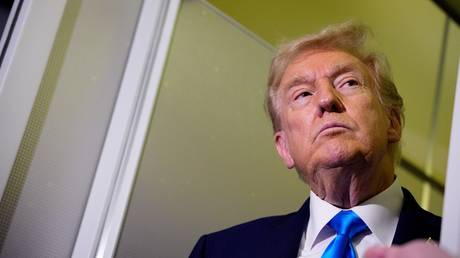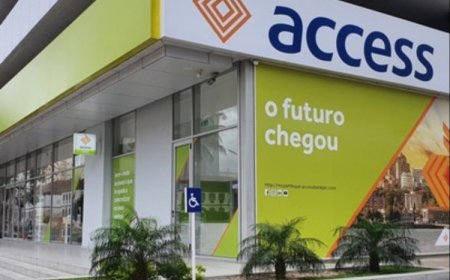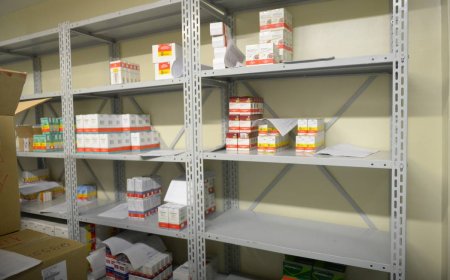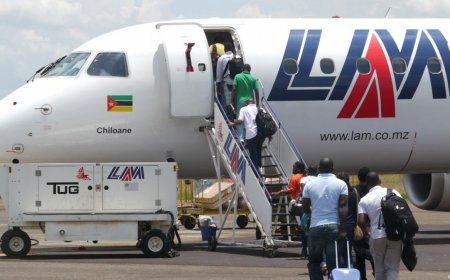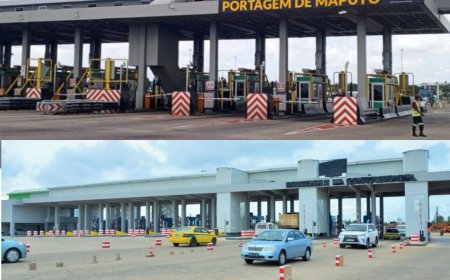Nyusi says Guebuza's debts could push Mozambique to bankruptcy
Filipe Nyusi, the President of Mozambique, has accused his predecessor, Armando Guebuza, of incurring debts that threaten to push the country into bankruptcy. These debts, intended for large infrastructure projects, are now maturing and putting pressure on the country's finances. Public debt levels are critical, forcing the government to take on new loans to pay off old ones. Analysts foresee tight financial management for the next government, which will have to tackle this growing economic crisis.
Filipe Nyusi, the President of Mozambique and former Minister of Defence under Armando Guebuza, has accused his predecessor of incurring debts that, if not properly paid off, could lead Mozambique to bankruptcy.
According to Nyusi, these debts were incurred to finance the construction of major infrastructure projects like the Maputo-Katembe Bridge, the Maputo Ring Road, and the Nacala Airport in Nampula province.
The projects for these infrastructure developments were conceived during Armando Guebuza's term. The Maputo-Katembe Bridge cost about $750 million, and the Maputo Ring Road around $315 million, both financed by Exim-Bank, a Chinese bank.
"The problem now is that those debts, among others, are coming due. We never completely get out of trouble. The debts for the Ring Road, Nacala Airport, and Katembe Bridge weren’t due before, but now they are,” Nyusi said in a video shared on social media.
“Now I have to pay because they are maturing, and if we don’t pay these invoices or maturing tickets, our country will be completely wiped out,” Nyusi stated in the same video, stressing that such a scenario would lead Mozambique into a “failed state” situation.
Government borrowing to pay off debt
Nyusi's statements come at a time when Mozambique's public debt is reaching alarming proportions, forcing the government to spend more to service the debt while also maintaining its operations. Due to the high cost of debt, the government is often forced to resort to domestic borrowing to pay off external debts, such as the hidden debts.
In light of this scenario, it becomes evident that there is a deficit in public investment, which receives only about 7% of the annual state revenues in Mozambique. One of the most burdensome expenses for the government is internal debt, usually incurred to ensure the state's operation.
According to the Treasury Bond Issuance Calendar for 2024, issued by the Ministry of Economy and Finance (MEF), the government is required to resort to domestic debt twice a month from January to December to ensure the continuity of the few existing social investments.
This calendar indicates that the government will need to secure just over 45 billion meticais for investment expenses, at a time when Mozambique's GDP projections are around $17 billion.
Analysts predict tight management for next government
Ezequiel Moiane, an economist and member of the Mozambican Association of Economists (AMECOM), notes that the state's indebtedness creates a vicious cycle due to its negative impact on the economy.
Moiane highlights that by incurring domestic debt, the state competes for credit with the private sector, which has greater potential to invest in projects capable of generating more jobs.
“The credit allocated to the state should go to the private sector, which could generate more employment,” he explained, adding that state indebtedness does not have the same capacity to create economic opportunities.
“This, in general, causes a negative impact, as seen in the reduction of jobs, low social investment, and restriction of private investment, as well as creating a situation of low liquidity,” he emphasized.
On the political perspective of the debt, political analyst and university lecturer Wilker Dias believes that the coming times may be marked by more borrowing scenarios.
He warns of the possibility of new projects, such as SUSTENTA, bringing unforeseen debts. Dias believes that the country’s economic situation will be a very complicated dossier for the next government, due to factors such as the Single Salary Table (TSU) and security challenges in Cabo Delgado, which may also involve borrowing to support the Defence and Security Forces (FDS).
According to Dias, it is essential that the next government fully understands the debt dossier and corrects any shortcomings to avoid the risk of funding blockages.
Data from the Central Bank shows that public domestic debt increased by about 51.91 billion meticais between December 2023 and May 2024, bringing the total amount to nearly 370 billion meticais just in debt.
The Governor of the Bank of Mozambique, Rogério Zandamela, stated that the high level of government debt imposes serious limitations on the central bank's ability to implement effective economic policies.
According to the IMF, Mozambique invests about 20% of its revenues to service the debt.





